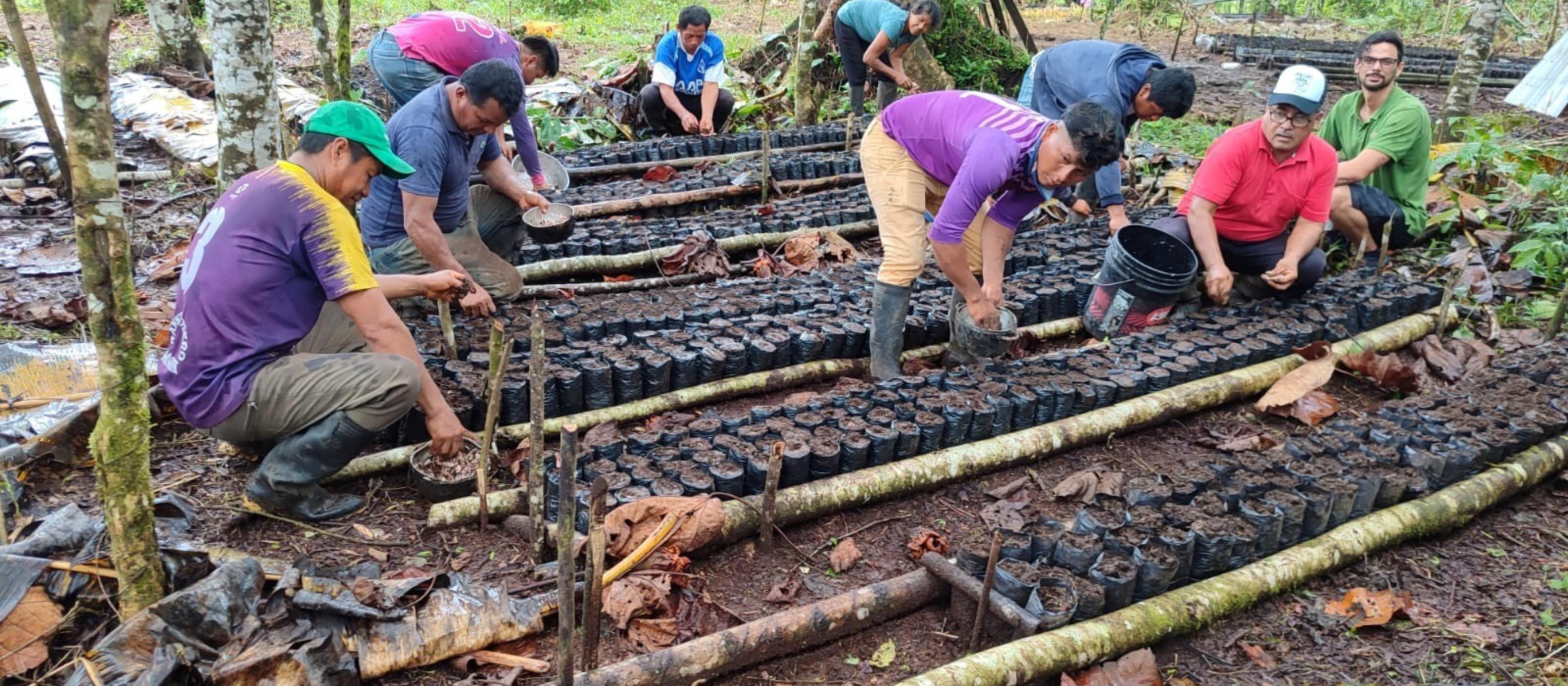CIVIL SERVICE WITNESSES: DAVIDE'S STORY
‘’Where Discomfort Becomes Growth’’, di Davide Marella - Corpi Civili di Pace Lago Agrio (Ecuador)
To date, condensing these intense weeks full of stimuli that have caressed all human senses is, at the very least, a complex task; however, it will not discourage me from giving them a written form.
Starting with the context, Lago Agrio appears as a dark spot that clashes when juxtaposed with the wonders of the Amazon Forest in which it is embedded. A city dominated by the gray of asphalt and buildings, blending with the gray of clouds always ready to unleash relentless rain. However, if I were to limit myself to presenting only this cynical and disheartening image, I would be trampling on the strength and vitality of the many people who are rooting themselves here, often without even having the chance to choose.
I must admit that falling into the trap of cultural rupture is rather easy. The rhythms of life, comforts, food, and many other facets that make up daily life in Lago Agrio stand in stark contrast to the Western model. Thus, the adaptation process—both physical and mental—has been intense, certainly, but at the same time, it has awakened in my subconscious a curiosity that grows with each step toward discovering the multitude of traditions and knowledge that characterize this area.
From the very beginning, my interest was captured by the relationship that persists between humans and nature—contradictory in some ways, admirable in others. It seems absurd that a territory with some of the most abundant natural resources on the planet is paradoxically the most exploited and damaged. I am not uncovering any Pandora’s box, of course, yet experiencing it firsthand is a long-standing process that leaves one puzzled, to put it mildly.
On the other hand, it is impossible not to be amazed when exploring up close the green and lively surroundings just outside the urban center, witnessing the profound knowledge of animal and plant species and how they can be a resource in healing, sustenance, and—even socially—considering ceremonies linked to indigenous communities.
Regarding the work I am involved in, my project partner and I were literally catapulted into the Escuelas Resilientes activities (a program implemented by UNICEF but managed by ENGIM), aimed at raising awareness among students of local public schools on topics such as personal hygiene, climate change, migration, and energy education through dynamic and completely horizontal lessons. Despite joining the project mid-course, thanks to the good vibes of our colleagues and the active participation of the students, the feedback has been very positive. I have greatly appreciated the continuous exchange with the boys and girls who accompanied us on this path of mutual sharing. They surprised me with their creativity, engagement, collaboration, ideas, and imagination, but above all with the curious way they approach the world.
I will cherish the moments of play, games, and chatter during recreo and lunch breaks, during which any cultural barrier seemed to collapse completely. We never arrogantly pretended to change the fate of future generations; rather, we hope they may have developed a more critical attitude toward the topics we proposed.
After this month-long interlude, I began activities in my main project at the Caritas office within the Apostolic Vicariate of Sucumbíos, which aims to provide social, economic, health, and integration assistance to refugees and migrants. From the outset, thanks to the relaxed and organized work environment, I had the opportunity to engage with a reality surrounded by various challenges.
Our task, for the time being, is to listen to and identify the vulnerabilities and needs of people seeking support through their current and past experiences and direct them to the area that can best manage their case, provided they meet certain criteria. Additionally, we have been given a fair amount of freedom to propose talleres or activities that could enhance the efficiency of Caritas services. Furthermore, I have actively participated in another branch of the project, aimed at strengthening agricultural production and distribution in indigenous communities in the areas surrounding Lago Agrio.
This has been an extremely stimulating experience, both for the completely new context and the transversal skills it allows one to acquire. Being in close contact with forms of society with fewer social structures has offered invaluable insights on both civic and human levels.
Thus, although less than two months have passed, I feel that I have settled fairly fluidly into the context, which, though complicated and at times hostile, is proving to be a constant source of personal growth and development. Of course, there will be difficult moments, but I believe they do not diminish the meaning of the experience; on the contrary, they can ignite it. For what is authentic most often originates precisely from what lies beyond comfort.


